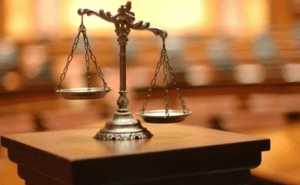African legal systems said to impede human rights promotion
 Dr Augustine P. Mahiga, United Republic of Tanzania’s Minister for Foreign Affairs, says the different legal systems in Africa are bottlenecks for effective implementation of the many legal obligations on the Continent.
Dr Augustine P. Mahiga, United Republic of Tanzania’s Minister for Foreign Affairs, says the different legal systems in Africa are bottlenecks for effective implementation of the many legal obligations on the Continent.
Dr Mahiga asserted that it was incumbent upon all African Governments to work towards full harmonisation and synchronisation of the legal instruments.
“Equally important, the different foreign languages in many African countries have also constrained the proper interpretation of legal instruments for effective implementation human rights laws,” Dr Mahiga stated at the close of the Fifth Annual High Level Dialogue on Democracy, Human Rights and Governance in Africa, at the United Republic of Tanzania.
The High Level Dialogue was on the general theme: “Reflecting, celebrating and advancing human and peoples’ rights in Africa with a special focus on the rights of women.”
The Tanzanian Foreign Minister therefore urged African Governments to harmonise existing legal documents so that they could easily be accessible and interpreted.
Dr Mahiga who is also Tanzanian Minister in charge of East African Cooperation urged African Governments to renew their commitments in implementing human rights instruments to the fullest, and also undertake self-assessments as well as being subjected to assessment mechanisms from time to time.
“This in turn, will help improve human rights situation in Africa and also create awareness so required,” he noted.
The Tanzania Minister observed that in the next decade, African Governments should focus more on enhancing synergies and cooperation among human rights stakeholders.
African Governments should also renew their commitments to ratify and domesticate shared values instruments especially those on human and peoples’ rights; and to reaffirm commitments to implement recommendations, decisions and judgments of human rights treaty bodies and to comply with their treaty obligations.
Dr Mahiga said: “Equally, more emphasis should be on designing a better understanding of the challenges facing the effective enjoyment of human rights on the continent.
“It is disheartening to note for instance only 30 African countries have ratified the African Charter on Human and Peoples’ Rights, the very charter establishing this Court.
“It is worrisome too to note that out of these 30 countries only eight have made a Declaration in respect of Article 34 (6) of the Charter, allowing access to NGOs and individuals before the Court.
“A great deal of political will is required to change the status quo and I am sure and optimistic that this is doable,” he said.
On the 10 Year Action and Implementation Plan on the Promotion and Protection of Human and Peoples’ Rights in Africa, Dr Mahiga said: “It would be desirable to conduct a more participatory approach by involving a wider audience than only a team of experts.
“I believe when the plan is finally adopted and put into action, it will largely improve Human Rights situation in Africa for the coming decade and many years ahead.
“I also encourage many African States and other stakeholders to invest more resources on the implementation of this plan,” he said.
The dialogue focused on democracy, human rights and governance in Africa and provided the opportunity to assess, reflect and to advance the efforts in the promotion and protection of Human Rights in Africa.
The platform also made a great deal of review on the implementation of the outcomes of previous human rights conferences, focusing on the Grand Bay Declaration in 1999 and the Kigali Plan of Action in 2003.
“It is reassuring to note that, you were able to underscore the importance of the political commitment in implementing these two important declarations,” he said.
Dr Mahiga said Good Governance, Human Rights and Democracy were three different concepts but interwoven.
“They are essentially interdependent and form a strong foundation for peace, stability and development endeavours of any state.
“It is common knowledge that you cannot have one of these without the other. It is therefore appealing that our efforts should be gathered at a holistic approach in improving the three principles”.
The Dialogue also assessed the 13 years of the Maputo Protocol on the Rights of Women; 15 years of the African Committee of Experts on the Rights and Welfare of the Child; 29 years of African Commission on Human and Peoples’ Rights; and 35 years of the adoption of the African Charter on Human and Peoples’ Rights.
The AU has declared 2016 the African Year of Human Rights with particular focus on the Rights of Women.
About 400 delegates, including the representatives of AU Member States; Members of the African Governance Platform; Academia, Researchers, Distinguished African statesmen/women; Civil Society Organisations, Media, International Partners and Youth Organisations, among others attended.
The rest are: Representative of ECOWAS Court of Justice; Representative of the European Court of Human Rights; representatives of the African Commission on Human and Peoples’ Rights; and African Committee of Experts on the Rights and Welfare of the Child.
Representatives of the United Nations High Commissioner for Human Rights and GIZ (German Development Cooperation) also attended.
Source: GNA
